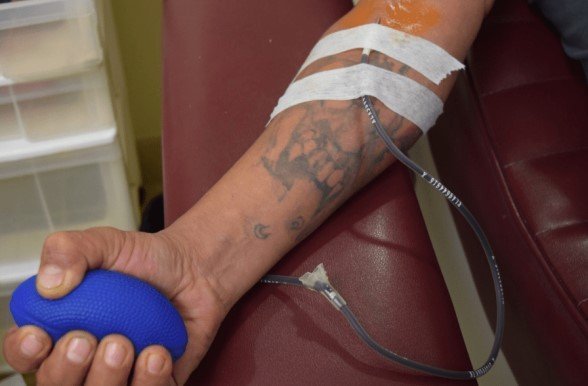Deciding when to seek medical advice for fertility can feel overwhelming. With about 1 in 8 couples facing challenges in conceiving, knowing the right time to consult a specialist is a crucial first step. This decision often depends on various personal factors, including your age, health, and how long you have been trying. Understanding these key elements can help you navigate your journey to parenthood with more confidence and clarity.
Key Factors to Consider Before Seeing a Doctor
Before scheduling an appointment, it’s helpful to do a bit of self-assessment. Thinking about a few key areas of your health can provide valuable information for both you and your future doctor. This initial evaluation can help pinpoint potential issues early on.
Two of the most significant preliminary checks involve ovulation for women and sperm quality for men. These are fundamental aspects of conception that can often be investigated before you even step into a clinic, giving you a head start on understanding your fertility status.
Taking a proactive approach by understanding your body is one of the most empowering steps you can take. Whether it’s tracking your cycle or getting a simple lab test, this information provides a solid foundation for any future conversations with a fertility specialist.
Does Your Age Change the Timeline?
Yes, your age is one of the most critical factors when determining how long you should try to conceive before seeking professional help. A woman’s fertility naturally declines with age, so the recommended timeline for trying on your own varies significantly.
For individuals in their 20s or early 30s, the general advice is to try for at least one year. However, this window shortens considerably as you get older. This is because egg quality and quantity decrease more rapidly after the age of 35.
Doctors recommend a more proactive approach for older prospective parents. If you are over 40 and trying to conceive, it is often advised to consult a specialist right away to discuss your options and create a plan. Waiting too long can reduce the chances of success with fertility treatments.
Here is a simple guide based on age:
| Your Age | When to See a Doctor |
|---|---|
| Under 35 | After 1 year of trying to conceive. |
| 35 to 39 | After 6 months of trying to conceive. |
| 40 and over | Consult a specialist immediately when you decide to try. |
How Your Health and Lifestyle Play a Role
Your overall health is a cornerstone of fertility. Factors like weight, diet, and lifestyle choices can have a significant impact on your ability to conceive. A healthy Body Mass Index (BMI) is particularly important for both men and women.
A BMI between 19 and 29 is considered ideal for conception. Being significantly underweight or overweight can disrupt hormone levels, which can in turn affect ovulation in women and sperm production in men. Making positive changes to reach a healthier weight can sometimes be enough to restore fertility.
However, even if your BMI is outside the ideal range, regular ovulation is a positive sign. While a healthy weight improves your chances, it’s not the only factor. A holistic view of your health is always the best approach.
Understanding Your Body’s Fertility Signals
Learning to read your body’s signals is an essential part of the conception journey. For women, knowing if and when you are ovulating is the first major piece of the puzzle. Ovulation is the release of an egg from the ovary, and without it, pregnancy is not possible.
There are several ways to track ovulation at home. You can start by checking your Basal Body Temperature (BBT) each morning or by using over-the-counter ovulation predictor kits. These methods can help you identify your most fertile window each month.
For men, understanding sperm health is equally vital. A semen analysis is a straightforward laboratory test that assesses three main factors:
- Sperm Count: The number of sperm per milliliter of semen.
- Sperm Motility: The ability of the sperm to move effectively.
- Sperm Morphology: The size and shape of the sperm.
This test provides a clear picture of male fertility and is one of the least invasive and most rational ways to investigate potential issues. You can often arrange for this test even before your first consultation with a specialist.
When to Seek Help Sooner
While age-based guidelines are helpful, there are certain situations where you should not wait to see a doctor. If you or your partner have a known medical condition that could affect fertility, it is best to seek advice as soon as you decide you want to start a family.
Conditions like Polycystic Ovary Syndrome (PCOS), endometriosis, irregular or absent periods, or a history of pelvic infections in women warrant an immediate consultation. Similarly, for men, a history of testicular problems, cancer treatment, or sexual dysfunction are reasons to see a specialist early.
Don’t hesitate to be your own health advocate. If you have a gut feeling that something isn’t right or if you have specific health concerns, scheduling a conversation with a doctor is always a wise decision, regardless of how long you have been trying.
Exploring Your Treatment Options
If you and your doctor determine that you need assistance, there is a wide range of modern fertility treatments available. The path you take will be customized to your specific situation, starting from simpler interventions to more advanced procedures.
Often, the first step may involve fertility drugs. These medications work by stimulating your hormones to encourage ovulation, helping the ovaries release one or more eggs. They have a good success rate for many couples.
If initial treatments are not successful, do not lose hope. Advanced reproductive technologies like In Vitro Fertilization (IVF) have helped millions of people become parents. The field of reproductive medicine is constantly evolving, offering more options and higher success rates than ever before. Discussing all available paths with your specialist will help you make an informed choice.
Frequently Asked Questions about Fertility
How long should a couple try to conceive before seeing a doctor?
This depends on age. If the woman is under 35, it’s recommended to try for one year. For women aged 35 to 39, the timeframe is six months, and for those 40 and over, it is best to consult a doctor immediately.
What is a semen analysis and is it important?
A semen analysis is a lab test that checks the health and viability of a man’s sperm. It is a crucial and rational first step in fertility testing because it assesses sperm count, movement, and shape, which are all vital for conception.
Can my weight really affect my ability to get pregnant?
Yes, your weight can significantly impact fertility. A Body Mass Index (BMI) outside the healthy range of 19 to 29 can disrupt hormone balance and affect ovulation in women and sperm production in men, making conception more difficult.
Are fertility drugs the first step in treatment?
For many couples, fertility drugs are a common first-line treatment. These medications help stimulate the hormones responsible for ovulation and are often used before moving on to more advanced procedures like IVF.
What can I do at home to check if I am ovulating?
You can track ovulation at home by monitoring your Basal Body Temperature (BBT) every morning before getting out of bed. You can also use ovulation predictor kits (OPKs), which detect the surge in luteinizing hormone (LH) that happens just before an egg is released.







Leave a Comment